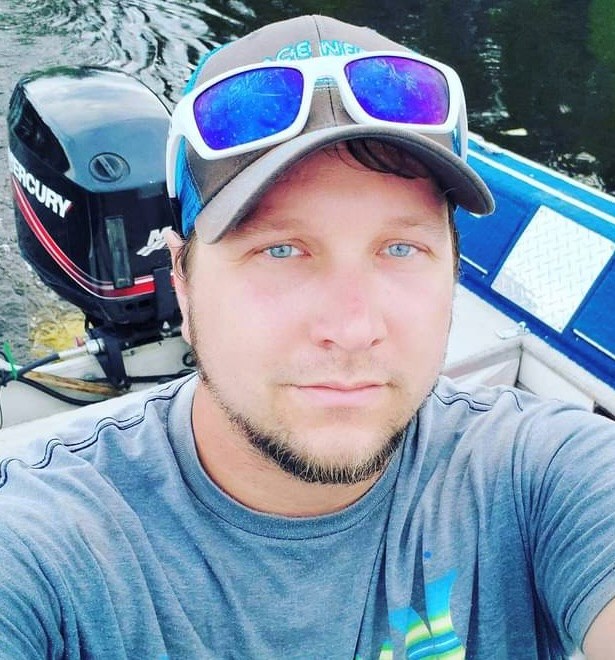KIRKLAND LAKE - After the death of her son, a Kirkland Lake mother is speaking out in hopes of helping end the stigma surrounding opioid addiction and overdoses.
Wendy Gregorich's son Harley died of an overdose on Oct. 20, 2020.
During his last summer, Gregorich said Harley was working in Sudbury so they made a trip down to visit him.
“He just looked at me and my husband, his dad, and he said, if I ever go back to Kirkland, I will die. He just felt if he came back, the group he would get in with and the drugs that were here that he would end up dead. That was the end of September. By October, he was gone,” she said.
Harley was a very loving and caring son who just wasn’t happy with his life, Gregorich said.
“He had a lot of issues that we didn't get diagnosed until he was 17 from a psychiatrist in Timmins,” she said.
Gregorich said her son struggled with mental illnesses, including ADHD and borderline personality disorder.
“I don't really know when he started doing the hard, hard drugs. He wasn’t the type that needed it every day. He went in spurts. And when it got to be too much for him, he would literally detox himself,” she said.
For nearly the last three years of his life, Harley was on methadone.
“We were all proud of him and he was proud of himself even though he hated being on the methadone. He went off it I believe in early spring of 2020 and everything spiralled from there,” she said.
“The day before he passed, he went back to the methadone clinic and he called me to pick him up and he just told me, he's done. He's changing his life. He's not doing this anymore, that he's going to go back on the methadone. He’s going to live his life again. And then the next day, he passed.”

According to the Timiskaming Health Unit, from 2019 to 2023, there were 79 paramedic service calls for suspected opioid-related incidents, with the greatest percentage of calls among those 20 to 39 years of age (55 per cent).
During the same time period, 52 doses of naloxone (Narcan) were administered for opioid-related incidents when paramedic services were called in Timiskaming.
Between January and March of this year, there were three drug-related deaths, which represents a local annual rate of 35.9 deaths per 100,000 population per year, compared to Ontario’s rate of 21.3 deaths per 100,000 population per year for the same period, according to the health unit.
Gregorich, is a member of Change for Timiskaming, a group of volunteers who are parents and loved ones who’ve lost someone they love to drug and alcohol addiction. The group’s focus is to create awareness about the dangers of substance misuse, to give a voice to those who have passed and to help tackle the stigma around substance use disorder in the region.
On Aug. 31, the group hosted the third annual overdose awareness day with about 100 people in attendance.
The event included a barbecue, live music performances, speeches, poetry and many kiosks with helpful information, peer support, naloxone training and kits, said Josée Merrick, a retired substance use disorder counsellor and opioid replacement case manager who spearheaded the Timiskaming opioid poisoning prevention task force.
During a Kirkland Lake council meeting on Sept. 5, while talking about the event, Coun. Rick Owen opened up about his own battles with addiction.
“The one I talk about is alcohol. That was my main addiction,” he said. “Addiction is an illness. It's not a choice. I like to tell people I chose to have my first beer. I did not choose to be an alcoholic. No one would. It takes too much work and it destroys everything you learn.”
Owen said you’re “not getting high to feel good.”
“It doesn't matter what addiction, whether it's opioid or alcohol or whatever it is, you don't have a choice. You're not getting high to feel good, you're doing your addiction because you have to. Your mind is telling you you have to do it. It's not fun,” he said.
“You will steal, you will lie, you will cheat, and it's an awful life. I'm hoping that society is going to keep changing its attitude towards people with addictions.”
Mayor Stacy Wight said it’s important to recognize how often this issue touches the lives of the Kirkland Lake community.
“These are our friends, our co-workers, and our family members. Far too often the victims of overdose are the casual user; the people we know and love,” she said.
“Removing stigma and facing this issue with compassion are the first steps to making real change in our community.”
After Harley died, Gregorich was in counselling for nearly two years.
“It impacted us all greatly. My son and husband went through a lot of guilt. People say, 'Oh, it'll get easier in time.' Losing your child doesn’t get easier. We're coming up on three years and it was like it was just the other week, the other day, the other month,” she said.
Harley didn’t choose to die, Gregorich said. “They do it because they're covering up stuff. They're just trying to be happy for a while and forget,” she said.



